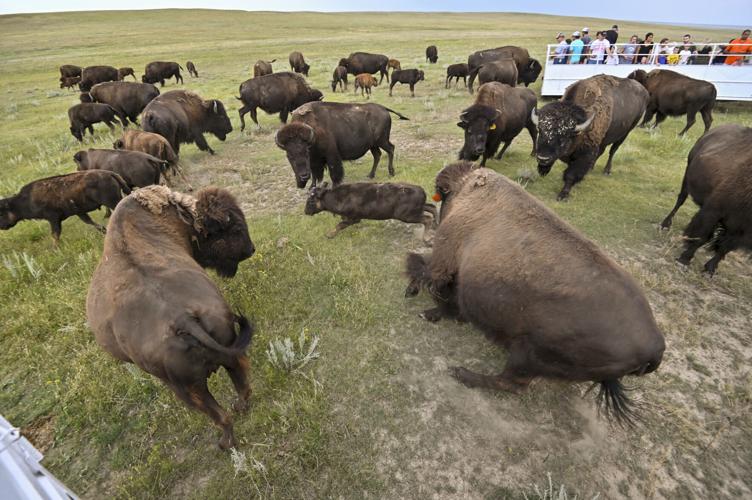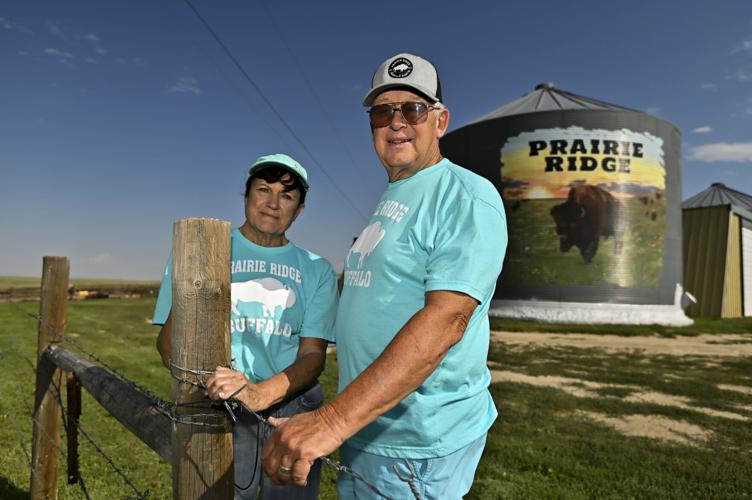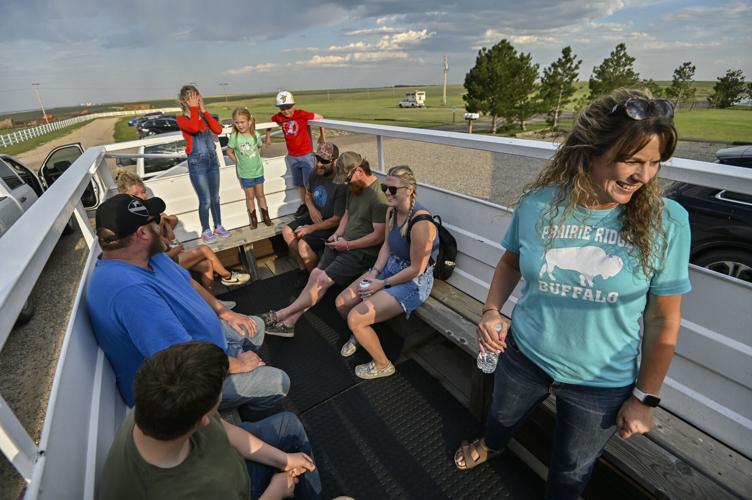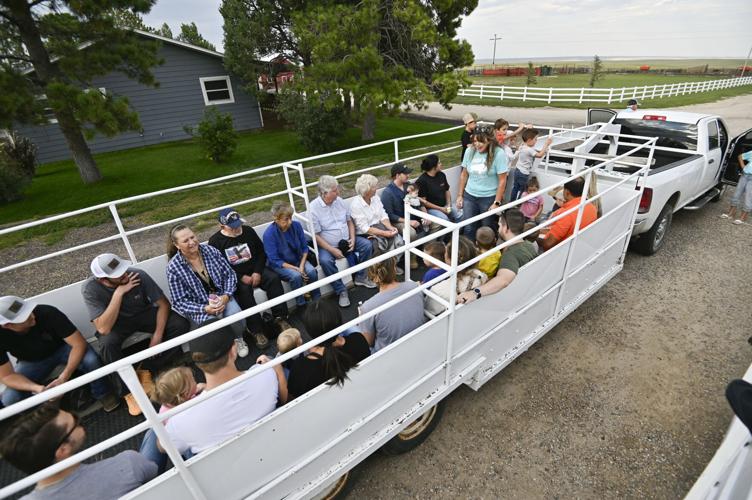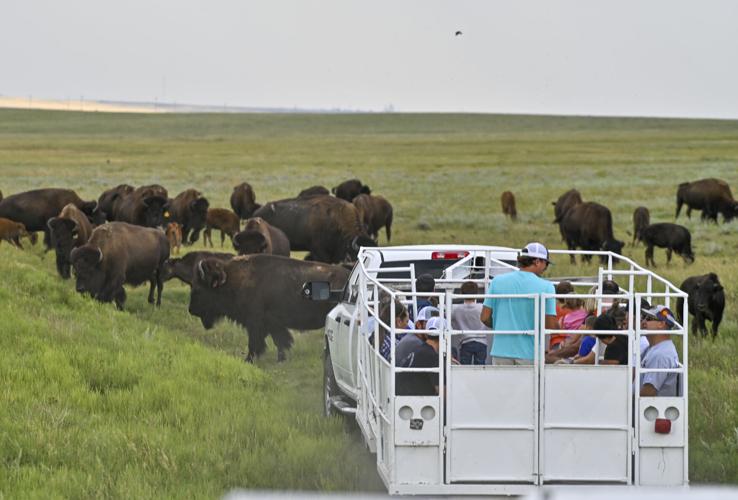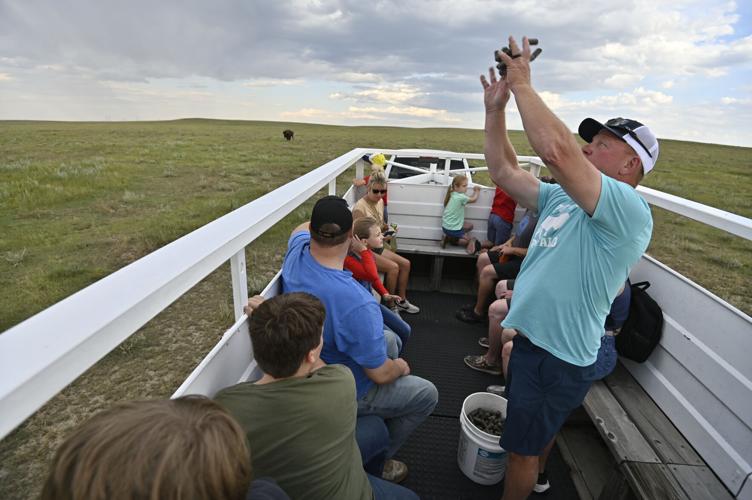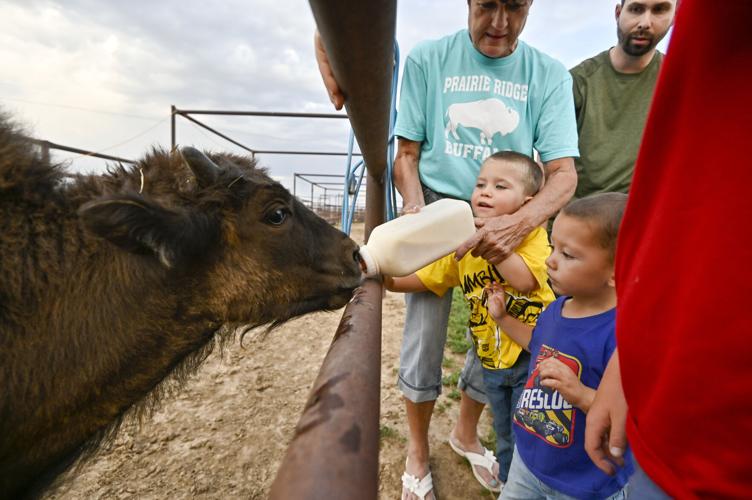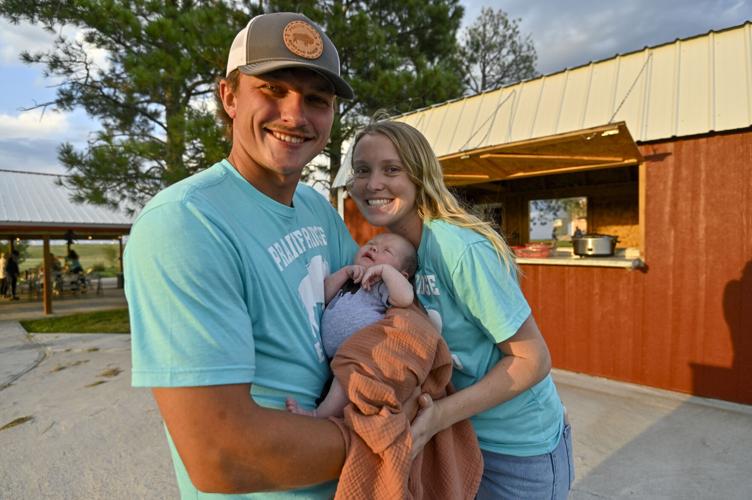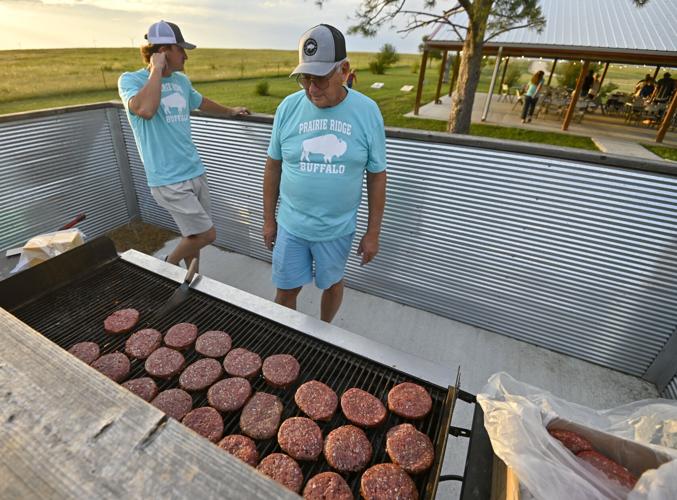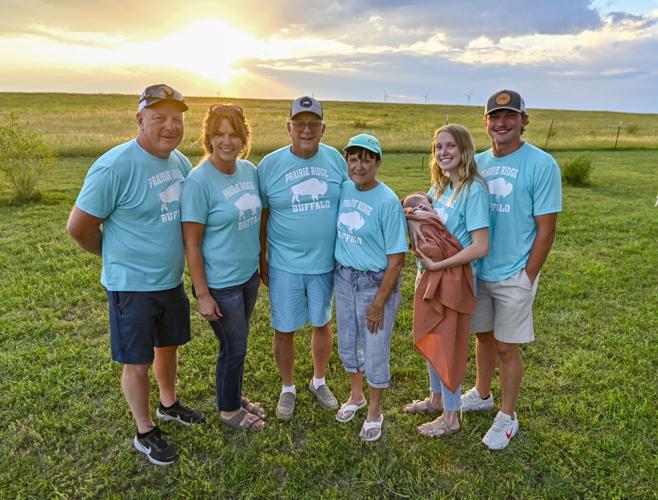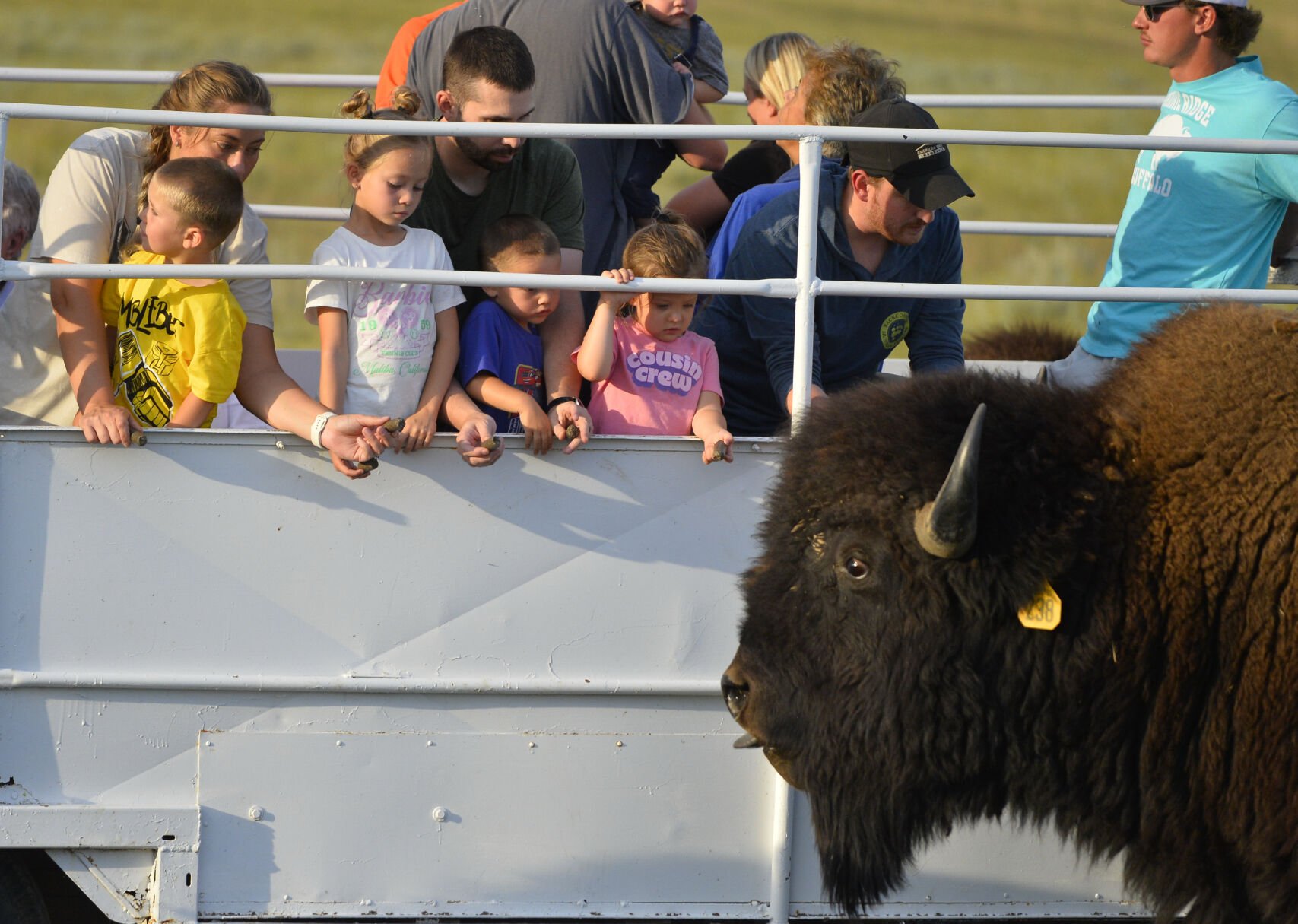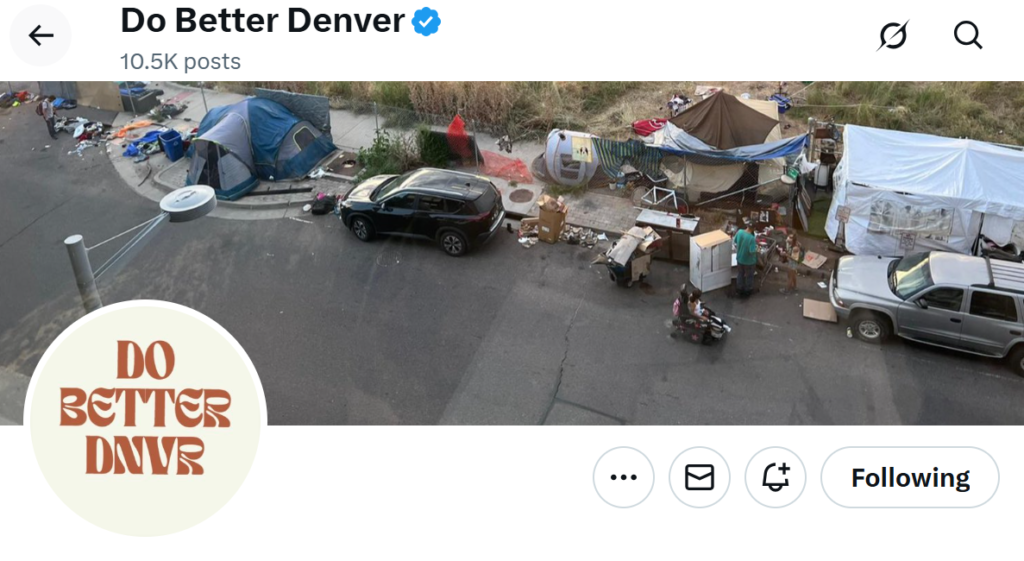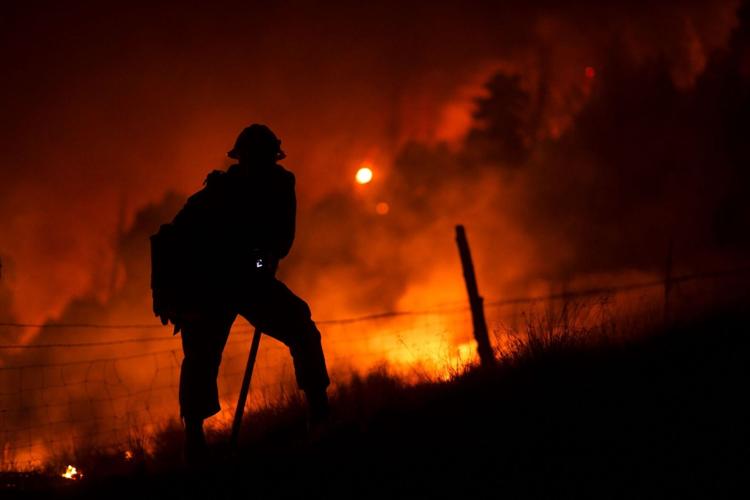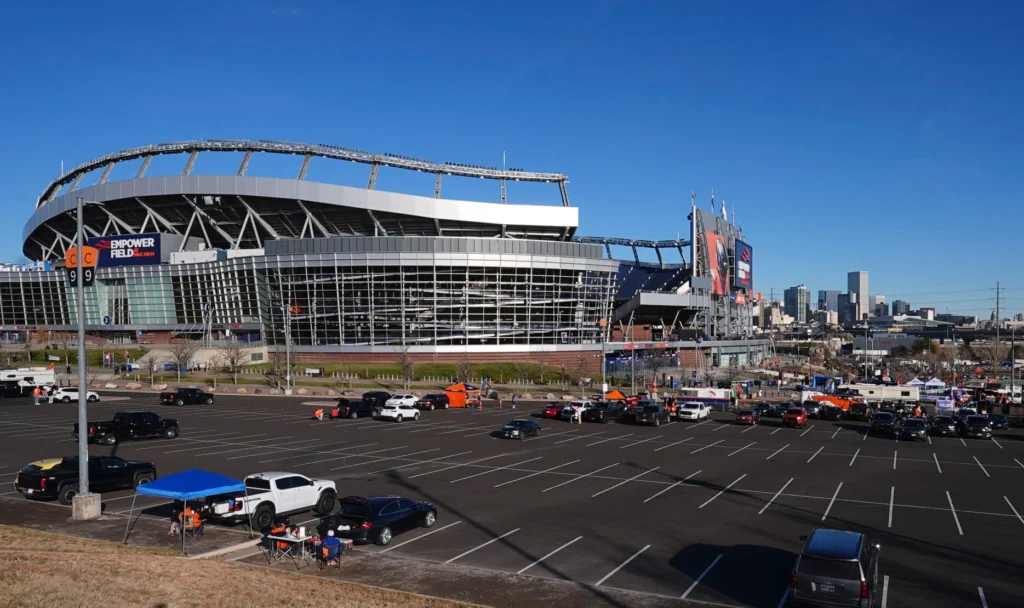You can’t pet the ‘fluffy cows,’ but you can feed them — and eat them
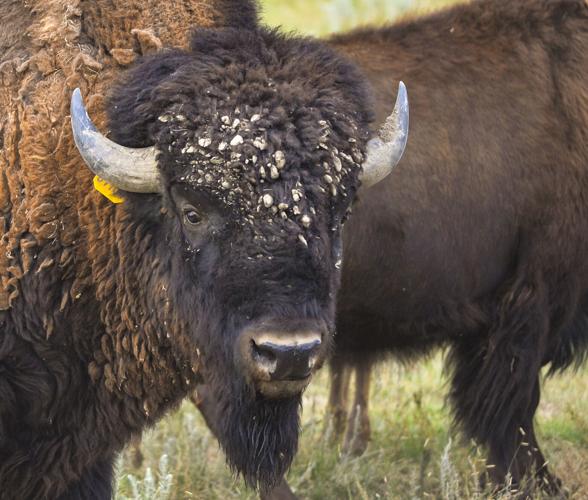
Intelligent, majestic, and relatively low maintenance when it comes to care, the American Bison has been a lucrative and sustainable investment for the owners of the Prairie Ridge Buffalo Ranch in Limon, Colorado, on Aug. 15, 2025. (John Leyba/Special to The Denver Gazette)
John Leyba/Special to The Denver Gazette
As the sun begins to sink on a quiet August evening, a warm breeze blows across the eastern Colorado plains as middle school teacher and buffalo rancher Carrie Bennett loads up close to two dozen guests into two white farm trailers.
The smell of fresh-cut grass is in the air.
As ranch guests begin to settle into the simple wooden bench seats, Bennett steps up to the front of the trailer with an announcement.
“We only have one rule at the ranch,” she said. “Don’t pet the buffalo.”
Bennett and her husband, Shawn — a retired Colorado State Patrol Trooper — own and operate the Prairie Ridge Buffalo Ranch, located about 90 minutes east of Denver in Limon, Colorado.
What started as a 29-animal “hobby” in 1999 by Carrie’s parents, Ray and Debbie Theiman, has now grown into a formidable commercial buffalo operation that currently sustains three living generations of bison enthusiasts.
The fourth generation just arrived a few weeks ago, but family members Cannan and Avery Bennett said she has “yet to indicate any firm interest.”
Now with an average of 1,000 animals, the Prairie Ridge crew is focusing its efforts on building a sustainable legacy for future generations.
Although a highly niche market, the demand for buffalo meat has grown globally, driven by its perception as a healthier, lower-fat alternative to beef, according to a recent report by TechSci Research, a New York-based industry research firm.
The ranch is a living, breathing entity, and everything centers around the animals’ life cycles.
Calves are born one day, and older animals are sent to market the next, Theiman explained.
But markets can and do change, and Bennett said the idea is to diversify and incorporate new revenue streams while still respecting traditional ranch values — as well as the animals and the local community that supports them.
During the months of June, July and August, Prairie Ridge opens its gates to the public for 45-minute guided tours via an open-top trailer. Guests ride ranch-style across the grassy prairie for an up-close look at their prized beasts and the opportunity to hand-feed and photograph the animals as they roam in their natural habitat.
Bennett and his wife serve as master storytellers of the ranch, weaving American history with elements of conservation as well as fact-filled tales of some of the furry inhabitants.
“When you go out there, you realize that there’s something magical about a bison,” Bennett said. “It’s almost like our (American) history screams to you from a century ago and says ‘you really, really need to take this in.’ And in that moment, time stops. It’s the weirdest thing. It’s like a moment you couldn’t have experienced unless you grew up in 1870.”
Tours conclude with a family-style buffalo burger dinner set against a breathtaking prairie sunset — complete with Debbie’s signature Cowboy Calico Beans, chips, a non-alcoholic beverage, and homemade cookies.
But when the tour season concludes, the family shifts its focus to the coming roundup, a process in which calves are separated from the cows, weaned and then returned to the ranch for vaccinations and fattening for meat.
Fall also brings new opportunities for those interested in rifle and bow hunting, which are often among the items on many folks’ bucket lists.
Bennett offers approximately 65 private hunts on the massive ranch, leveraging it as a herd management tool to move surplus bison and provide quality meat to hunters.
Hunts are supervised and conducted in a respectful and ethical manner, he said, and are offered from November through February.
Ranch staff will assist hunters with field dressing and loading the animal for transport.
“I have a conversation with all my hunters,” Bennett said. “This is not target practice. You will get a buffalo when you come out here.”
But Bennett cautions prospective hunters to be prepared to kill the animal “cleanly.”
“If you start wounding my buffalo, I will put it down,” he said. “I’ve spent two or more years of their life keeping them alive, and I’m not going to watch them suffer.”
After the seasonal hunts conclude, ranch life doesn’t slow down, according to Bennett.
“From February until March, we’re fixing everything that we’ve broken throughout the season,” he said. “And then from March, we start having calves.”
Event season, for visits such as school tours, begins sometime in May, with public tours returning in July.
Theiman said the addition of the tours and the hunts has brought in additional revenue, helping secure the family’s legacy.
But wait.
There’s more.
Missed the tour season, but got a camper van or RV?
Prairie Ridge is a member of Harvest Hosts, a network of farms, wineries, breweries, distilleries, and golf courses that offer members safe and unique camping spots off the beaten path.
The ranch is well-equipped with on-site management, an event center, a small ranch store, and breathtaking views of the eastern Colorado plains.
Oh, and there’s the buffalo, of course.
The ranch store offers souvenirs and on-site sale of USDA-inspected, all-natural, frozen bison meat, raised without growth hormones, stimulants, or antibiotics.
Corporate outfits looking for a unique business meeting retreat may rent the ranch event center and pavilion.
These facilities are also well-suited to family gatherings.
“Everyone in this family has a job,” Carrie Bennett told The Denver Gazette.
From answering the phone to tours, to caring for the animals, and marketing, each family member has the opportunity to join the family business as a buffalo owner, and take on a specialty that appeals to them.
But in all cases, Theiman said the animals and their well-being will always come first — for obvious reasons.
“Every time we add family members, we just have to add additional income,” Thieman said. “And we’re able to do that with the bison.”






